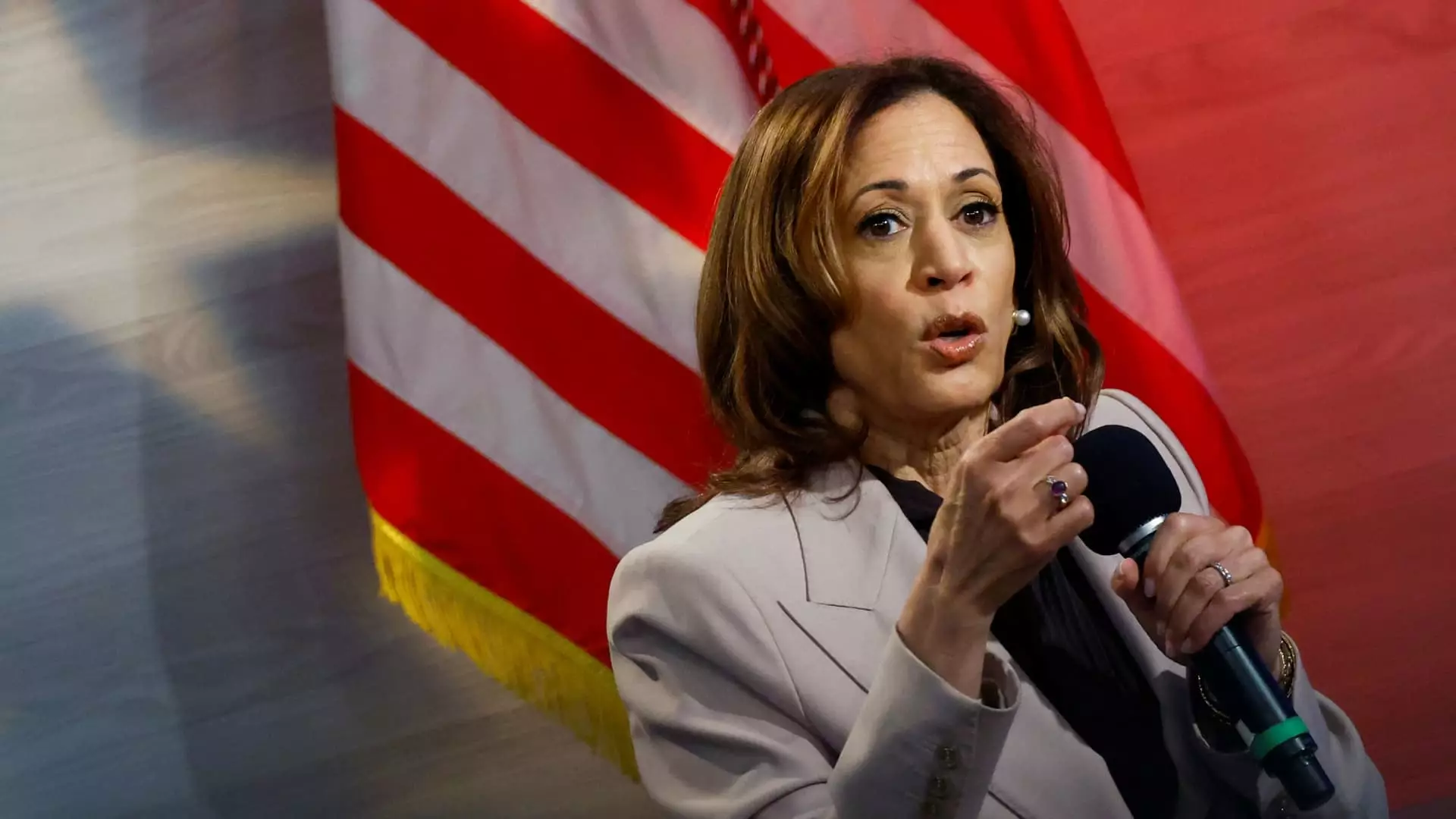The 2024 election cycle is proving to be pivotal for the Democratic Party, particularly in the context of young Black men—a demographic where support for the party is showing signs of fracture. In a recent discussion with the National Association of Black Journalists (NABJ), Vice President Kamala Harris articulated her economic strategies aimed at rekindling this crucial voting bloc’s support, particularly in light of a recent NAACP poll indicating a substantial portion of Black men under 50 favoring former President Donald Trump over the current administration.
Harris’s emphasis on earning votes rather than assuming loyalty reflects an acute awareness of changing political sentiments among young Black men. The poll illustrates a shift that could threaten traditional Democratic strongholds, as 25% of Black voters in this age group consider Trump a viable alternative. Harris’s insistence on not taking this demographic for granted is both a tactical move and a recognition of their evolving political landscape. This approach signals a need for the Democratic party to engage more actively with constituents who feel overlooked, particularly in economic discussions.
At the crux of Harris’s message is her commitment to fostering economic opportunity within Black communities. She cited initiatives such as an “economic opportunity tour,” showcasing her intention to not just make promises but to interact directly with communities to understand their challenges. A notable aspect of her proposals includes advocating for a $50,000 small business tax deduction and removing medical debt from individuals’ credit scores. These measures aim to address systemic barriers that have hampered the economic growth of Black entrepreneurs—a demographic known for their creativity and ambition but often constrained by lack of access to capital. Harris remarked on the potential of these entrepreneurs who, despite having innovative ideas, struggle to secure the necessary financing to bring their visions to fruition.
The economic concerns of voters are inherently tied to their political preferences. With inflation and rising living costs shaping public sentiment, Harris’s proposals seek to address pressing financial worries that resonate deeply with young Black voters. Chronicling a stark contrast between the economic landscape of the Trump administration prior to COVID-19 and the current economic recovery efforts under the Biden administration, Harris aims to position herself as the agent of economic relief. Her narrative hinges not only on promoting policies that could enhance financial stability for Black men but also on countering the nostalgic appeal that Trump holds for some voters.
Harris’s strategy is multifaceted; it doesn’t merely rest on policy but also emphasizes engagement and dialogue with the community. In contrasting her approach to Trump’s divisive rhetoric, Harris underscores the importance of respect and constructive conversation. When responding to Trump’s derisive comments about her racial identity and labels like “DEI hire,” Harris reframed the conversation around dignity and respect in political discourse. By doing so, she positions herself as a candidate who recognizes the nuances of race and identity, seeking to elevate discussions rather than diminish them.
As the election approaches, the Democratic party faces an urgent need to recalibrate its outreach to young Black men. Harris’s proactive measures to engage this community through economic empowerment reflect a broader strategy intended to combat perceptions of neglect. By presenting actionable solutions rooted in the real challenges faced by these voters, Harris aims to rekindle ties that appear to be fraying. For Democrats, the stakes are high, as the ability to reclaim this vital support could very well influence the outcome of the upcoming elections. The future will reveal whether these tactics resonate effectively with the targeted constituency, and whether they can indeed turn the tide back in favor of the Democrats.



Leave a Reply